Politics, Propaganda, and Public Health
Lexington Studies in Health Communication
Series Editors: Leandra H. Hernndez and Kari Nixon
National and international governments have recognized the importance of widespread, timely, and effective health communication, as research shows that accurate, patient-centered, and culturally competent health communication can improve patient and community health care outcomes. This inter-disciplinary series examines the role of health communication in society and is receptive to manuscripts and edited volumes that use a variety of theoretical, methodological, interdisciplinary, and intersectional approaches. We invite contributions on a variety of health communication topics including but not limited to health communication in a digital age; race, gender, ethnicity, class, physical abilities, and health communication; critical approaches to health communication; feminisms and health communication; LGBTQIA health; interpersonal health communication perspectives; rhetorical approaches to health communication; organizational approaches to health communication; health campaigns, media effects, and health communication; multicultural approaches to health communication; and international health communication. This series is open to contributions from scholars representing communication, womens and gender studies, public health, health education, discursive analyses of medical rhetoric, and other disciplines whose work interrogates and explores these topics. Successful proposals will be accessible to an interdisciplinary audience, advance our understanding of contemporary approaches to health communication, and enrich our conversations about the importance of health communication in todays health landscape.
Recent Titles in This Series
Politics, Propaganda, and Public Health: A Case Study in Health Communication and Public Trust
By Laura Crosswell and Lance Porter
Communication Studies and Feminist Perspectives on Ovarian Cancer
By Dinah Tetteh
Reifying Womens Experiences with Invisible Illness: Illusions, Delusions, Reality
Edited by Kesha Morant Williams and Frances Selena Morant
Politics, Propaganda, and Public Health
A Case Study in Health Communication and Public Trust
Laura Crosswell and Lance Porter
Lexington Books
Lanham Boulder New York London
Published by Lexington Books
An imprint of The Rowman & Littlefield Publishing Group, Inc.
4501 Forbes Boulevard, Suite 200, Lanham, Maryland 20706
www.rowman.com
Unit A, Whitacre Mews, 26-34 Stannary Street, London SE11 4AB
Copyright 2018 by The Rowman & Littlefield Publishing Group, Inc.
Inoculating the electorate: a qualitative look at American Corporatocracy and its influence on health communication by L. Crosswell and L. Porter, 2016, Critical Public Health, 26 (2), p.207220 Copyright 2016 by Taylor & Francis. Reprinted [or adapted] with permission. http://www.tandfonline.com
All rights reserved. No part of this book may be reproduced in any form or by any electronic or mechanical means, including information storage and retrieval systems, without written permission from the publisher, except by a reviewer who may quote passages in a review.
British Library Cataloguing in Publication Information Available
Library of Congress Cataloging-in-Publication Data
Names: Crosswell, Laura, author. | Porter, Lance, 1969- author.
Title: Politics, propaganda, and public health : a case study in health communication and public trust / Laura Crosswell and Lance Porter.
Description: Lanham : Lexington Books, [2018] | Series: Lexington studies in health communication | Includes bibliographical references and index.
Identifiers: LCCN 2018011190 (print) | LCCN 2018011813 (ebook) | ISBN 9781498553001 (Electronic) | ISBN 9781498552998 (cloth : alk. paper)
Subjects: | MESH: Pharmaceutical Preparationseconomics | Direct-to-Consumer Advertising | Health Knowledge, Attitudes, Practice | Health Communicationmethods | Patient Acceptance of Health Care | United States
Classification: LCC HF6161.D7 (ebook) | LCC HF6161.D7 (print) | NLM QV 736 AA1 | DDC 659.19/61510973dc23
LC record available at https://lccn.loc.gov/2018011190
 The paper used in this publication meets the minimum requirements of American National Standard for Information SciencesPermanence of Paper for Printed Library Materials, ANSI/NISO Z39.48-1992.
The paper used in this publication meets the minimum requirements of American National Standard for Information SciencesPermanence of Paper for Printed Library Materials, ANSI/NISO Z39.48-1992.
Printed in the United States of America
Contents
Acknowledgments
We would first and foremost like to thank Lexington Books for giving us a platform to share our work and thoughts on commercial influence in the health care industry. Specifically, we would like to acknowledge our acquisitions editor, Nicolette Amstutz, and her assistants, Jessica Thwaite and James Hamill, as they were instrumental in bringing this book to fruition. We would also like to thank the proofreaders at Lexington Books, as well as our anonymous peer reviewers for their valuable contributions during the revision and editing process.
This work would not have been possible without the help and support from the Reynolds School of Journalism at the University of Nevada, Reno, and the Manship School of Journalism at Louisiana State University. Wed specifically like to thank the Center for Advanced Media Studies at the Reynolds School and the Mary P. Poindexter Professorship in the Manship School, for providing us with funding for this books production. In addition, we would like to express our appreciation to the LSU Media Effects Lab for the administration of our experiments. We also want to extend our sincere thanks to our colleagues, supervisors, and mentors for offering us guidance, advice, and feedback throughout the publication process.
We would like to acknowledge the editors at Critical Public Health and Taylor and Francis . Material included in chapter 6 of this book originally appeared in Critical Public Health and is reprinted here with their permission (Inoculating the electorate: a qualitative look at American corporatocracy and its influence on health communication, by L. Crosswell and L. Porter, 2016, Critical Public Health, 26 (2), p. 207220. Copyright 2016 by Taylor & Francis. Reprinted [or adapted] with permission. www.tandfonline.com). We thank both parties for allowing us to include our previously published work in this book. The authors would also like to thank Dr. Meghan Sanders for her work on the original publication of the data in chapter 5 (Crosswell, L., Porter, L. & Sanders, M., 2018). Out of sight, out of mind?: Addressing unconscious brand awareness in healthcare communication. In H. D. OHair, [Ed.] Risk and health communication in an evolving media environment , New York: Routledge).
Additionally, we extend our sincerest gratitude to Kristi Barber for her copyediting work and moral support during each stage of the manuscripts development. We would also like to thank Joel DesOrmeau for his extensive proofreading and Kari Barber for her help with photo editing and image resizing.
Finally, we would like to thank our families and friends for their unconditional love, support, and patience as we worked to finish this book. We could not have done it without you.
Preface
In his book Land of Desire , William Leach traces the conception of Americas consumption-based culture back to the 1800s. The author documents the cultural rise of consumer capitalism in the United States and exposes ways in which consumer-oriented institutions, democratized desire, and customer imagination shape societal values. Mirroring Leachs concern for Americas consumer-driven ethos, this book takes an in-depth look at commercialized health messaging and the commodification of public health as it relates to the free market enterprise.
Next page

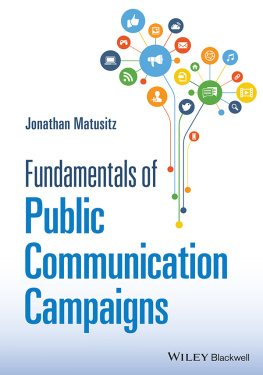
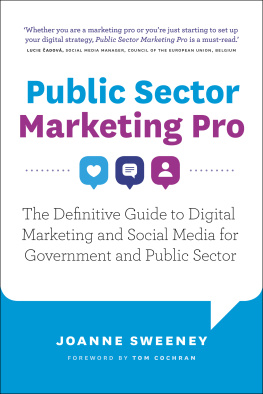
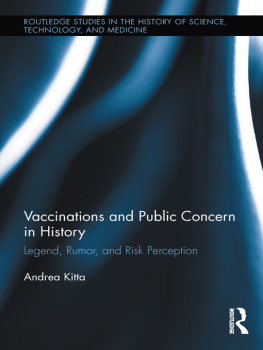

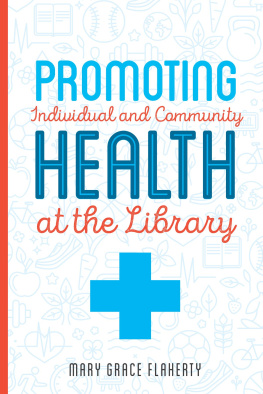
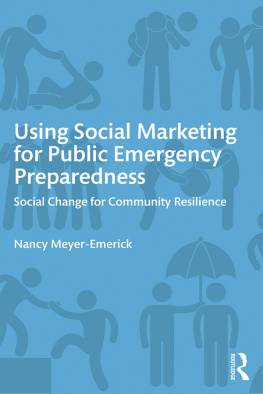
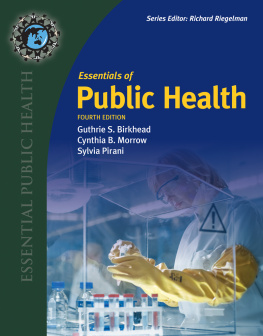
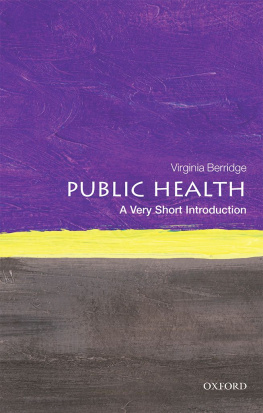

 The paper used in this publication meets the minimum requirements of American National Standard for Information SciencesPermanence of Paper for Printed Library Materials, ANSI/NISO Z39.48-1992.
The paper used in this publication meets the minimum requirements of American National Standard for Information SciencesPermanence of Paper for Printed Library Materials, ANSI/NISO Z39.48-1992.